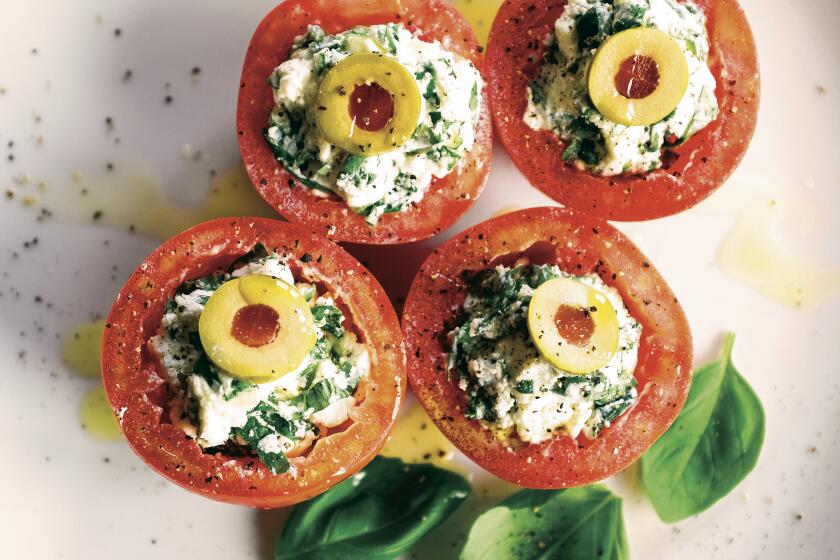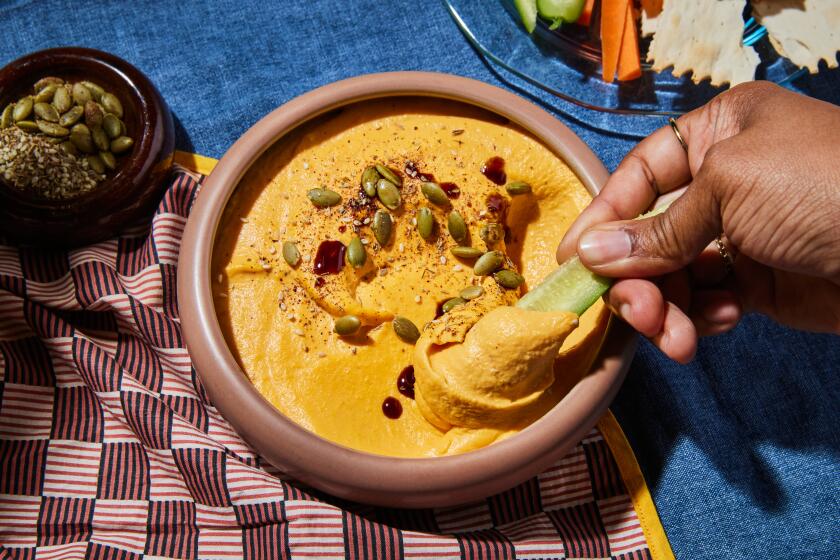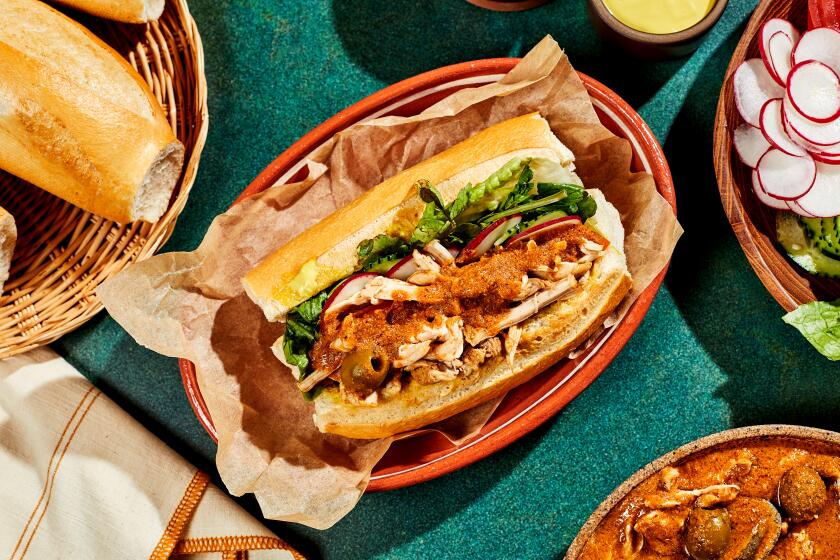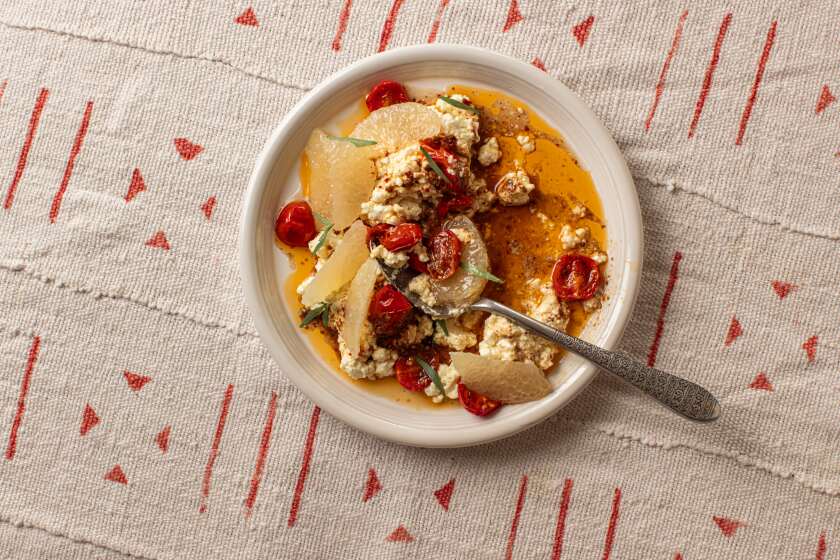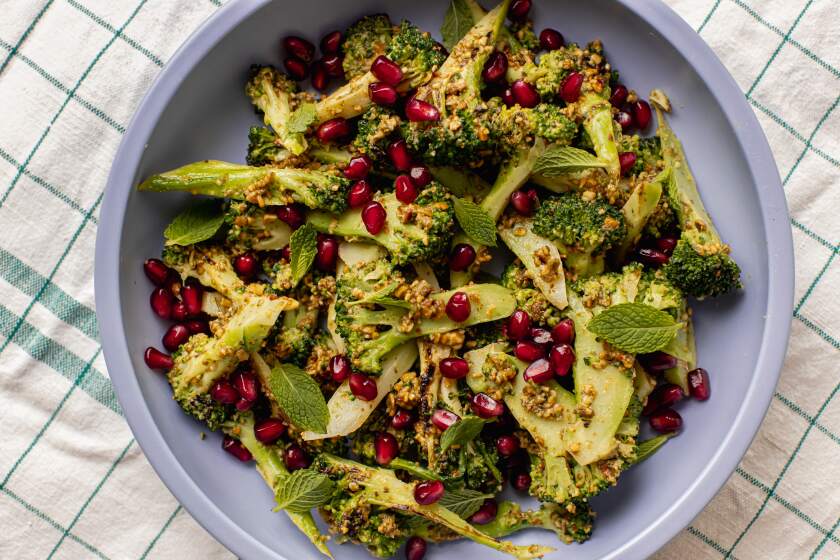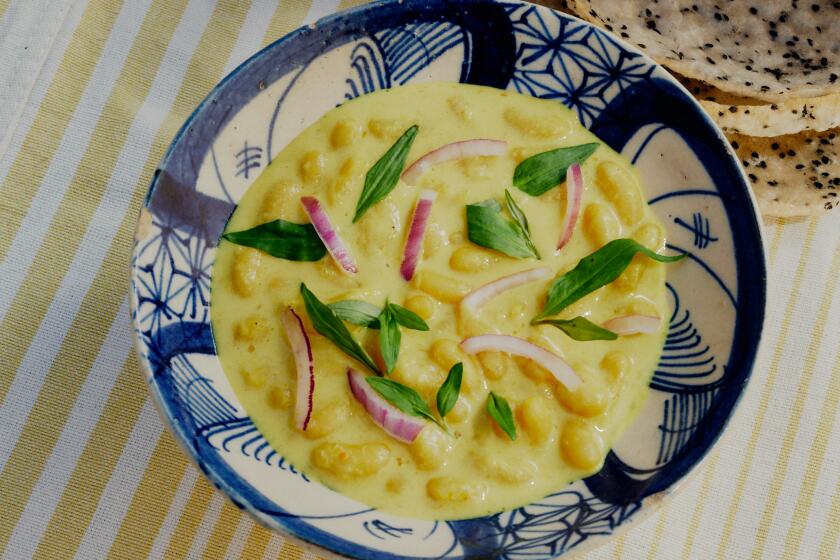Hush puppies
TWO wildly opposing trends of recent years -- artisanal bakeries and the low-carb diet -- have taken a toll on one of the greatest traditions in American cooking. Starting in Colonial times or even earlier, homemade quick breads such as biscuits, johnnycakes and muffins were considered indispensable side dishes at many meals. Today the tendency is either to slice up a great baguette or pass up the starchy calories altogether.
But there are times when something freshly baked, even something that’s impossible to buy, is just the right extra. The other week I came late to the planning for a potluck dinner, after the appetizers, salads, main course, side dishes and dessert had already been assigned.
There was nothing left to make but corn bread, a custardy one with green chilies and cheese that was more of a contribution than store-bought bread and more tempting than yet another green vegetable.
I could just as easily -- and effectively -- have baked spoon bread or popovers or gussied up a loaf of semolina bread into something rich enough to rival the main course.
I grew up thinking of cornbread as half a meal (along with a pot of beans) rather than just an accouterment. But my parents had a repertoire of quick breads that were more than breads. My dad baked biscuits to cover with gravy; my Belfast-born mom made scones on Sundays and Irish soda bread other days.
Her version of hush puppies was not the usual greasy, deep-fried nuggets so familiar in fast food today but more like johnnycakes, flat disks studded with chopped onion and baked in a cast-iron skillet. They were bread, sure, but they were more than that.
Her scones were sugared, but the basic recipe -- essentially a light but rich biscuit dough -- is just as suited to savory treatment. Add cheddar or Parmesan cheese and an herb such as thyme, chives or dill, and you get an excellent accompaniment for a wintry stew. (Americans would call these biscuits, but the name is less important than the experience. In the British Isles, after all, a biscuit is a cookie. Eat your scone.)
Muffins are so seldom seen after breakfast anymore that presenting them in savory form at dinner almost makes them seem like a side dish, especially when they are built on savory seasonings and cheese rather than sweet spices and sugar. Chipotle chile flakes with Monterey jack, or scallion greens and Swiss cheese are irresistible combinations.
Other quick breads that use no traditional leavenings are even better when they show up for dinner. Popovers are like hollow muffins, made with milk, eggs and flour and baked in custard cups in a very hot oven. They are classic with roast beef but also go well with fish.
Spoon bread has to be served like a corn pudding, scooped rather than sliced; old cookbooks used to suggest it as an alternative to potatoes with fried or roast chicken. Essentially a cross between cornbread and a souffle, it is made with a very liquid batter enriched with egg yolks and lightened with beaten egg whites.
All those quick breads are old Betty Crocker standbys that go back centuries. But in a crunched-for-time age, you don’t always need to bake from scratch. You can buy a good loaf of Italian bread, made from semolina or not, with or without sesame seeds, and turn it into something rich and rewarding in minutes with garlic and butter.
Add artichoke hearts and grated Gruyere mixed into a chunky spread, and a bread veers tantalizingly close to a vegetable. Dairy trumps starch, so even the most carb-fearing eater would have a hard time passing it by.
Bring a small pot of water to a rolling boil. In a mixing bowl, combine the cornmeal, sugar, baking soda and salt and mix well. Add three-fourths cup boiling water and stir to blend well. Let cool slightly, about 10 minutes.
Add the egg, buttermilk and onion to the batter and mix well.
Coat a 10-inch cast-iron skillet with just enough bacon grease, butter or oil to cover the bottom in a glaze, about 3 tablespoons. Turn heat to medium-high.
Working in batches of three to four each, use a tablespoon to drop the batter into the pan to make small cakes. They will spread slightly as they cook. Cook 4 to 5 minutes on each side, until browned and crisp-edged. Add extra grease as necessary to keep the pan glazed while frying. Serve immediately.
Get our Cooking newsletter.
Your roundup of inspiring recipes and kitchen tricks.
You may occasionally receive promotional content from the Los Angeles Times.









